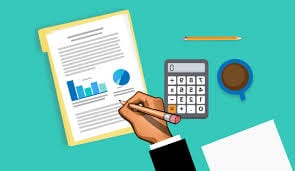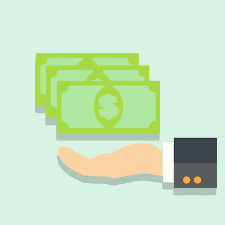About Chargeback
When a merchant is liable to refund the cardholder’s money due to any of the reasons that may be in favour of the cardholder/ its customer, it is called a chargeback (A claim against a charge, initiated by a customer with their bank).
Although, it is possible that the cardholder may not be listing a genuine reason or after the process of thorough check, the cardholder’s case does not show as a genuine one.
In such a case, the merchant may be safeguarded against a non-valid complaint and may not have to refund the amount.
From the cardholder complaining about someone fraudulently having used its card to duplicate billing, there can be one of the few reasons listed below for a complaint issued by the cardholder:
- Clerical chargebacks: These chargebacks occur when customer raises the issue such as duplicate billing, an incorrect amount billed, or when a promised refund did not get issued.
- Technical chargebacks: Such a chargeback is raised by the customer for technical reasons such as expired card authorization, non-sufficient funds, or bank processing errors.
- Quality related chargebacks: Such chargebacks are issued when customers claim to have never received the item(s) or received them either in a defective condition or later than promised to them.
- Fraud-related chargebacks: These chargebacks are inflicted when the customer gets charged without his/her knowledge and shows suspicion of identity theft and/or when it is charged without their consent.
- Chargeback fraud: This is also popularly known as friendly fraud. It occurs when a customer makes an online shopping purchase with their own credit card and following the receipt of the good, requests a chargeback. In case it gets approved, the customer receives the entire amount as a refund.
Impact of Chargeback on the business?
 Chargeback disputes being less than 1% of the total transactions in an year means that the merchant witnesses revenues and goodwill majorly throughout.
Chargeback disputes being less than 1% of the total transactions in an year means that the merchant witnesses revenues and goodwill majorly throughout.
With a robust payment gateway, your business is likely to face less chargebacks since constant chargebacks lower the trust of those customers who go through it. Although, the merchant gets 7 to 30 days’ time depending on the card scheme to follow up on the actual reason.
However, in case the chargeback is reported genuine after a thorough check of the records, the merchant is liable to pay the amount back.
This is almost the same impact of chargeback on businesses across the globe.
Procedure to Resolve Chargeback.
Since chargebacks need to be resolved as soon as possible, we make sure that the procedure that follows the application of chargeback is reliable.
About the procedure: Informing the Merchant about the dispute
The merchant is notified about the dispute raised by the customer via email, following which the merchant gets a minimum of 30 days to find out the genuineness of the dispute.
Merchant is also provided the payment ID along with the mentioned reason for the chargeback. This entire information helps the merchant track the records for checking various details of the placed order.
Our process: The merchant is notified about the dispute raised by the customer via email for the chargeback transaction along with the reason for the chargeback, asking for supporting documents against the chargeback transactions.
The merchant gets a minimum of 7 days to provide the supporting document.
Reviewing of the Chargeback
Once you are done tracking down the details after a thorough review, the step-by-step chain of events is needed to be shared with us. We are here to assist in the following situations:
Goods/Sevices delivered:
 If the order is delivered to the customer, the merchant needs to share the proof of deliveries, invoices, any other authorized proof of product/service delivery.
If the order is delivered to the customer, the merchant needs to share the proof of deliveries, invoices, any other authorized proof of product/service delivery.
shipping address, the date of delivery, any shipping documents that you have, as well as signatures that prove that the product was actually delivered and received.
Here’s a list of some general documents including the product description and the URL, as well as any links associated with that product, the customer’s name, the IP, signatures, billing addresses, receipts (scanned or print screens).
Also, communication that you’ve been involved in with the customer — could include emails, chats, audio recordings, etc., and any other relevant information that you deem necessary.
For offline services, the date of the service contracts or any other documents. For digital products, you basically need to prove that the customer actually used your product, so server logs, download history, etc.
Goods/services not delivered:
 If the order is not delivered to the customer, a review needs to be done by the merchant and it is required that the merchant understands if the customer is ready to accept the order still.
If the order is not delivered to the customer, a review needs to be done by the merchant and it is required that the merchant understands if the customer is ready to accept the order still.
In case the merchant does not wish to accept the order anymore, the amount needs to be refunded by accepting the chargeback.
Duplicate payment:
 In case of a duplicate payment issue, the merchant needs to share the proof of deliveries, invoices, any other authorized proof of product/service delivery.
In case of a duplicate payment issue, the merchant needs to share the proof of deliveries, invoices, any other authorized proof of product/service delivery.
Helpful supporting proofs may include, but are not limited to:
- Screenshots of any signatures proving payment authorization from the customer
- Email correspondence between you and the customer
- Proof of delivery screenshots
- Your site’s terms of service
- Social media screenshots (if the customer has posted pictures, or checked in with your business)
- User’s IP address
- Customer’s username (if applicable)
- Service usage times, dates, etc.
Requirement for sharing the documents
The merchant will then, be required to share the documents henceforth in accordance with the requirement by the bank following which the payment gateway represents the dispute on its behalf. Usually, banks have a window of 7 working days to represent the chargeback, and hence, the merchant is required to do so in the specified time to avoid losing the chargeback every time.
Merchants typically accept chargebacks if:
- The transaction amount is minor enough that it doesn’t justify the work of submitting evidence
- The transaction is known to be fraudulent
- A refund is warranted and the chargeback can be accepted in lieu of issuing a manual refund
We recommend keeping records of all transactions, so you are prepared in the event that a chargeback does happen.
Some important terms:
- Retrieval: A request initiated by a customer for more information about a charge
- Chargeback: A claim against a charge, initiated by a customer with their bank
- Representment: the merchant re-presents the transaction, accompanied by supporting document that contradicts the cardholder’s claim.
- Pre-arbitration (pre-arb): when the customer challenges a chargeback you have won for a second time –
- Arbitration Chargeback: Merchants choose not to go into arbitration stage because of the added fees, time, and the potential penalties if you lose your arbitration case
